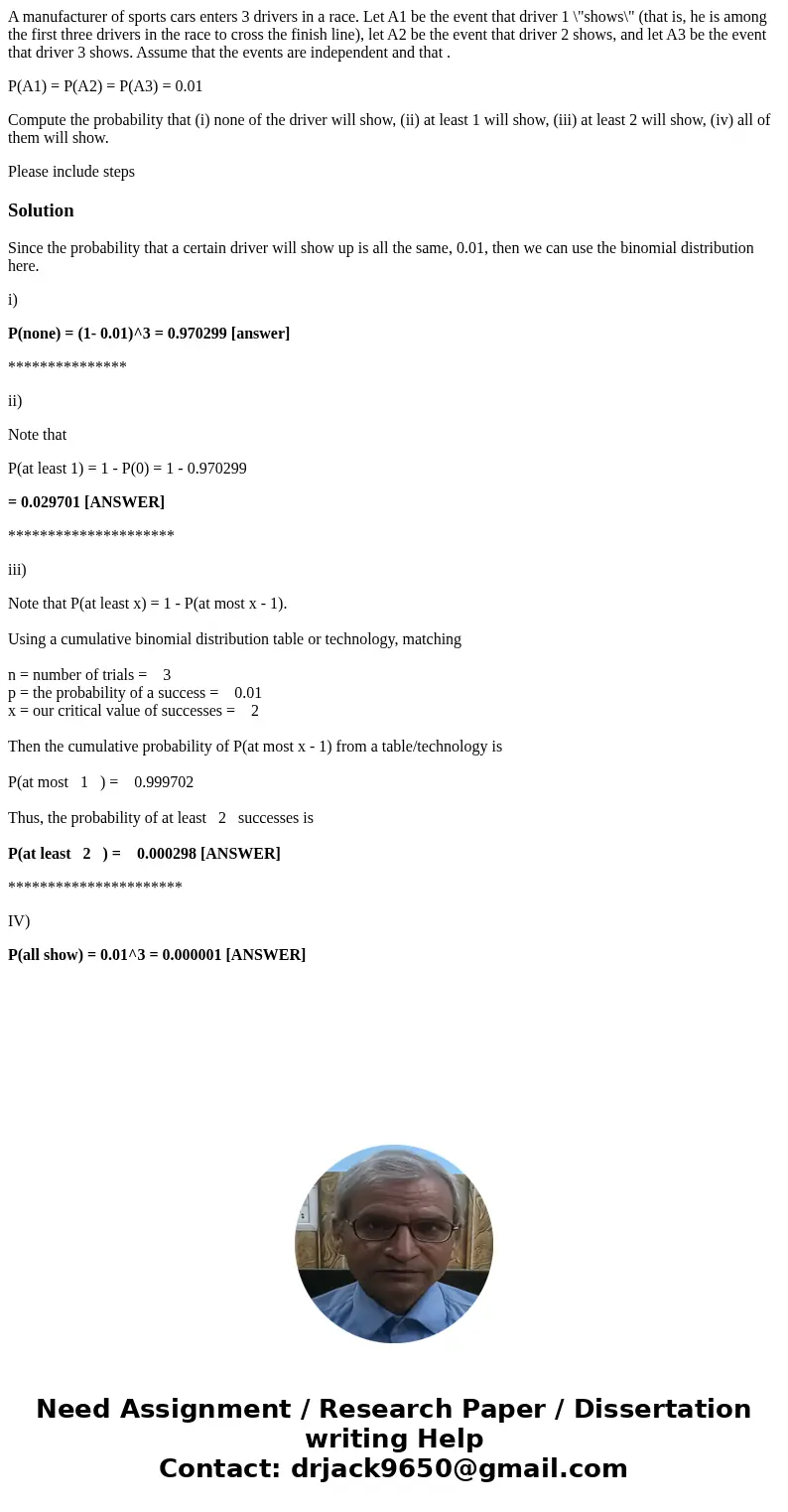A manufacturer of sports cars enters 3 drivers in a race Let
A manufacturer of sports cars enters 3 drivers in a race. Let A1 be the event that driver 1 \"shows\" (that is, he is among the first three drivers in the race to cross the finish line), let A2 be the event that driver 2 shows, and let A3 be the event that driver 3 shows. Assume that the events are independent and that .
P(A1) = P(A2) = P(A3) = 0.01
Compute the probability that (i) none of the driver will show, (ii) at least 1 will show, (iii) at least 2 will show, (iv) all of them will show.
Please include steps
Solution
Since the probability that a certain driver will show up is all the same, 0.01, then we can use the binomial distribution here.
i)
P(none) = (1- 0.01)^3 = 0.970299 [answer]
***************
ii)
Note that
P(at least 1) = 1 - P(0) = 1 - 0.970299
= 0.029701 [ANSWER]
*********************
iii)
Note that P(at least x) = 1 - P(at most x - 1).
Using a cumulative binomial distribution table or technology, matching
n = number of trials = 3
p = the probability of a success = 0.01
x = our critical value of successes = 2
Then the cumulative probability of P(at most x - 1) from a table/technology is
P(at most 1 ) = 0.999702
Thus, the probability of at least 2 successes is
P(at least 2 ) = 0.000298 [ANSWER]
**********************
IV)
P(all show) = 0.01^3 = 0.000001 [ANSWER]

 Homework Sourse
Homework Sourse